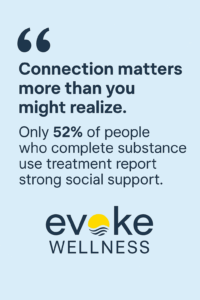When I got sober, the biggest thing I felt wasn’t pride—it was loneliness. It crept in during the quiet moments. Brushing my teeth alone. Sitting on the edge of the bed, wondering what to do now that drinking wasn’t an option. I didn’t miss the chaos—I missed the noise. The distraction. The way it used to fill the space.
If that sounds familiar, I want you to know this: you’re not doing it wrong. That ache isn’t a failure. It’s a space being cleared for something new. And men’s residential treatment—when done well—can help gently fill that space.
We often talk about rehab in big-picture terms: structure, safety, detox, therapy. But the most healing parts are often the quietest ones. Here are six benefits of men’s residential rehab that don’t get enough attention—and might just be exactly what you need.
1. You Get to Stop Pretending for a While
Out in the world, there’s pressure to keep it together. To look fine. To say “I’m good” even when you’re falling apart inside. In residential treatment, that mask can come off.
You don’t have to explain why you’re not okay. The people around you already get it. Some of them are still holding their own pieces together. Others are learning how to breathe again. There’s something deeply human about being in a place where no one expects you to perform.
You don’t have to be strong. You just have to be honest.
2. Time Slows Down—and That’s Healing
Early sobriety is full of emotional static. Regret. Restlessness. Shame. And most of us try to outrun it with busyness. But in residential, the pace shifts.
You eat without rushing. You sleep without alcohol. You start to notice your own thoughts. It’s weird at first—almost uncomfortable. But this slower rhythm is where the real repair begins. Your nervous system resets. You start to feel safe in your own body again.
Time becomes your ally, not your enemy.
3. You Hear Other Men Say What You’ve Been Afraid to Admit
There’s a moment that happens in group when someone says something and the room goes still. Maybe he talks about how ashamed he feels around his kids. Or how he drinks to feel like he matters. And you realize—I’ve felt that too.
There’s a strange comfort in being mirrored. It breaks the illusion that you’re the only one. In men’s residential treatment, those moments of connection can feel like tiny lifelines. Like you’ve come up for air after being underwater for years.
4. Simple Routines Help You Feel Steady Again
Making your bed. Showing up for breakfast. Sitting in group—even when you don’t feel like talking. These small routines can be surprisingly powerful.
In the Residential Mental Health Treatment Program at Evoke Wellness, these daily practices aren’t just chores—they’re intentional steps toward healing.
They give shape to your day. They prove you can follow through. And when the inside of your brain feels like static, that kind of stability matters. It’s not about being perfect. It’s about rebuilding trust—with yourself.
Structure doesn’t restrict you. It steadies you.
5. There’s Space for the Stuff You Never Said Out Loud
A lot of us carry stories we’ve never told. Maybe you were taught not to talk about feelings. Maybe your pain felt like too much for others. Maybe silence was survival.
In a good residential program, there’s room to let some of that out. No one pushes. But when you’re ready, you’ll find people who can sit with the hard stuff. Who won’t flinch. And that kind of witnessing? It’s medicine.
You don’t have to carry it all alone anymore.
6. You Remember That People Can Be Safe Again
If you’ve been hurt, used, or let down by others, being around people can feel like walking through a minefield. Trust doesn’t come easy. But men’s residential treatment is a place to try again—slowly, gently.
You watch guys mess up and apologize. You watch them show up, even when it’s hard. And over time, you start to feel less guarded. Not because everyone’s perfect, but because there’s space for being real.
You start to believe that connection is possible. Not overnight—but in the small ways that build up over time.
Quiet Doesn’t Mean Empty
Loneliness in early recovery can feel like a fog. Like the part of you that used to be lit up by substances has gone dim. But here’s the truth: you’re not broken. You’re just adjusting to the silence. And inside that silence, healing is happening.
Evoke Wellness offers men’s residential treatment that understands this. Our programs aren’t just about stopping use—they’re about helping you feel human again. Safe. Seen. Steady.
FAQs About Men’s Residential Treatment
How long is a typical stay in men’s residential treatment?
Most programs last 30 to 90 days, depending on your needs, insurance, and clinical recommendations. Some people benefit from longer stays, especially if they’ve had multiple relapses or complex emotional needs.
Do I have to talk in group therapy?
You’ll never be forced to speak—but you’ll be invited. Listening alone can be powerful in the beginning. Over time, many people find their voice naturally, without pressure.
Can I keep in touch with my family while in treatment?
Yes. Most programs have structured communication policies that allow regular contact with approved loved ones. Family therapy is often included as well, to support healing on both sides.
What should I bring to a residential rehab program?
Comfortable clothes, basic toiletries (non-alcohol-based), a journal, and any prescribed medications. You’ll receive a full packing list before admission, so you won’t have to guess.
Is residential treatment only for severe addiction?
Not at all. Residential treatment is for anyone who needs immersive support—whether you’re early in your recovery or struggling to stay sober outside of a structured environment. If outpatient hasn’t worked, this can be a powerful next step.
Let’s Talk—No Pressure, Just Possibility
If you’re newly sober and feeling the ache of that silence—you’re not alone. And you don’t have to figure it out by yourself.
Call Evoke Wellness at (866) 429-2960 or visit our men’s residential treatment program page. We’ll walk with you at your pace, no pressure. Just possibility.



